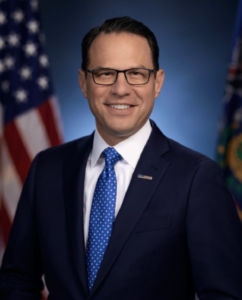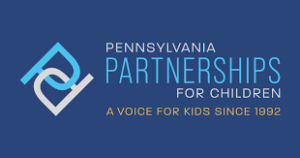PA Health Policy Update for April 26
The following is an update of selected state health policy developments in Pennsylvania from April 22 – 26. (Some of the language used below is taken directly from state documents).
2024 Primary Election Update
Pennsylvania held its 2024 primary election on Tuesday, April 23. In the race for Attorney General, former Auditor General Eugene DePasquale won the Democratic nomination and York County District Attorney David Sunday won the Republican nomination. Current State Representative Malcolm Kenyatta won the Democratic nomination for Auditor General. He will face the incumbent Auditor General Tim DeFoor in the fall. Lastly, Erin McClellan from Allegheny County won the Democratic nomination to challenge incumbent State Treasurer Stacy Garrity in the general election this fall. Find the comprehensive election results, including those for state House of Representative and Senate, here.
General Assembly
The House Health Committee and the Liquor Control Committee held a joint informational hearing on Thursday, April 25 examining public health challenges of cannabis legalization. A recording of the hearing is viewable here.
The state House of Representatives and Senate will convene for voting session in Harrisburg next Monday, April 29 through Wednesday, May 1. Following is an overview of selected health care-related legislative activity currently scheduled next week.
- The House Human Services Committee will meet on Monday, April 29 at 10:00 a.m. in Room 523 of the Irvis Office Building to consider, among other bills, House Bill 1783, which requires the development of opioid-related overdose public information, and House Bill 2137, which establishes the Maternal and Newborn Supply Kit Program. The meeting will be livestreamed here.
- The House Health Committee will meet on Tuesday, April 30 at 9:30 a.m. in Room 140 of the Main Capitol to consider the following bills.
-
- House Bill 2127, which requires clinicians to distribute information related to postpartum depression and conduct a postpartum screening for depression.
- House Bill 2208, which strengthens the Department of Health’s oversight of laboratories that test medical marijuana.
- Senate Bill 721, which establishes the Women, Infants and Children (WIC) State Advisory Board.
The meeting will be livestreamed here.
- The House Aging & Older Adult Services Committee will hold an informational meeting on Tuesday, April 30 at 10:00 a.m. regarding local Area Agencies on Aging. The meeting will take place in Room B31 of the Irvis Office Building. The meeting will also be livestreamed here.
- The House Human Services Committee will hold an informational meeting on Wednesday, May 1 regarding performance-based contracting for the Department of Human Services’ Office of Developmental Programs. The meeting will take place in Room 515 of the Irvis Office Building. The meeting will also be livestreamed here.
Department of Health
The Department of Health (DOH) has released a schedule of five public comment sessions to provide interested stakeholders an opportunity to comment on the development of the 2025 plan for the state’s Special Supplemental Nutrition Program for Women, Infants, and Children (i.e., WIC Program). Find the schedule and details on how to participate in this Pennsylvania Bulletin notice.
Department of Human Services
The Department of Human Services (DHS) has announced changes to the Medical Assistance (MA) program fee schedule based upon provider requests and clinical review. DHS is adding procedure codes for ECG services and removing prior authorization for fetal congenital abnormality testing. The changes are effective for dates of service on and after April 29, 2024.
Department of Drug & Alcohol Programs
The Department of Drug & Alcohol Programs (DDAP) has announced a virtual webinar in collaboration with the Center for Substance Abuse Treatment (CSAT) on strategies for preventing and treating xylazine in a behavioral health or clinical setting. It will be held virtually on Wednesday, May 8 at 3:00 p.m. The webinar is open to the public, but registration is required.
Stakeholder Events
DOH – HIV Community Prevention Planning Committee – May 1
The Human Immunodeficiency Virus (HIV) Prevention Planning Committee will hold a public meeting on Wednesday and Thursday, May 1-2, 2024. The meeting will be held in person and virtually. Find additional details in this Pennsylvania Bulletin notice.
PHC4 – Council Meeting – May 2
The Pennsylvania Health Care Cost Containment Council (PHC4) has announced it will hold a council meeting on May 2 at 8:30 a.m. Find additional information in this Pennsylvania Bulletin notice.
DOH – Organ Donation Advisory Committee – May 2
The Organ Donation Advisory Committee will hold a public meeting on Thursday, May 2 from 10:15 a.m. to 1:15 p.m. The meeting will be held virtually and in person. Find additional details in this Pennsylvania Bulletin notice.
DOH – Brain Injury Advisory Board – May 3
The Brain Injury Advisory Board will hold a public meeting on Friday, May 3, 2024 from 10:00 a.m. to 3:00 p.m. The meeting will be held in person. Find additional details in this Pennsylvania Bulletin notice.





 During the PHE, the number of uninsured children in the state fell from 4.6 percent to 4.4 percent, but some of that improvement could be reversed as the state begins to redetermine the eligibility of more than 3.5 million people currently on the state’s Medicaid rolls after a more than two-year hiatus in eligibility reviews. Today, more than 1.4 million children in Pennsylvania are enrolled in Medicaid or CHIP.
During the PHE, the number of uninsured children in the state fell from 4.6 percent to 4.4 percent, but some of that improvement could be reversed as the state begins to redetermine the eligibility of more than 3.5 million people currently on the state’s Medicaid rolls after a more than two-year hiatus in eligibility reviews. Today, more than 1.4 million children in Pennsylvania are enrolled in Medicaid or CHIP. Pennsylvania Act 2, passed earlier this year, appropriates $225 million in federal money and the state has earmarked a portion of that money for hospitals based on how many beds they have. Hospitals that serve especially high proportions of Medicaid patients, however, will receive funding over and above the amount targeted to them based on bed count alone.
Pennsylvania Act 2, passed earlier this year, appropriates $225 million in federal money and the state has earmarked a portion of that money for hospitals based on how many beds they have. Hospitals that serve especially high proportions of Medicaid patients, however, will receive funding over and above the amount targeted to them based on bed count alone.